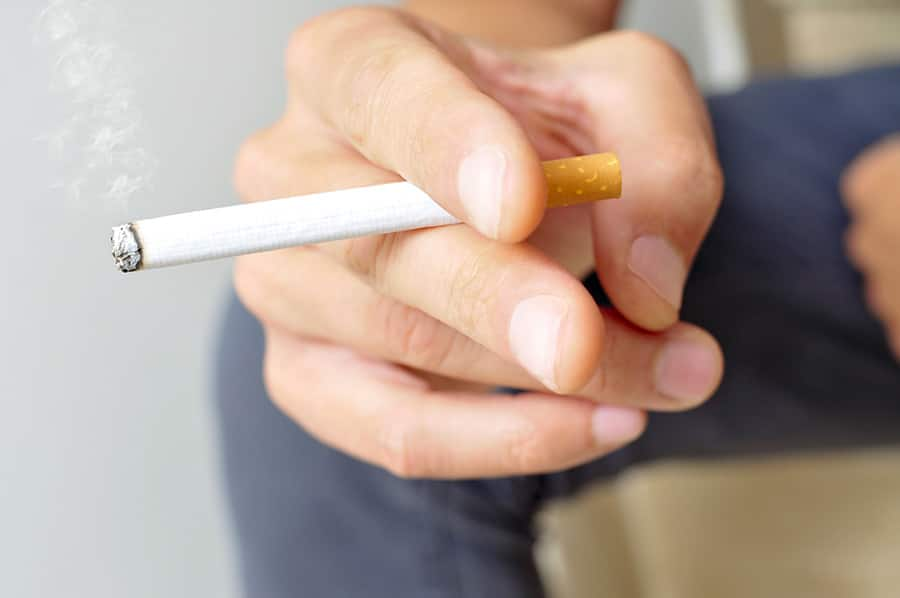As delicious as these soft recovery foods are, food can sometimes get stuck in empty wisdom teeth sockets after the procedure—no matter how careful you are. Learn how to take care of your mouth post-wisdom teeth extraction and what to do if food gets stuck in the sockets.
Why Do Wisdom Teeth Need to Be Removed?
Not everyone needs their wisdom teeth removed, but for those who do, it's generally because the teeth get stuck below the surface of the gums and grow at an odd angle, also known as impaction. This can cause pain, swelling and lead to various dental issues. Consult with your dentist about your situation with your wisdom teeth.
Possible complications from not having wisdom teeth removed include:
- Overcrowding
- Pain, tenderness, and swelling around the gums
- Excessive tooth decay
- Cysts
- Gum disease
How Can I Avoid Getting Food Stuck in Wisdom Teeth Sockets?
Thankfully, recovering from having your wisdom teeth removed is only temporary. These tips should help you find comfort during the healing process and ensure your recovery goes smoothly:
- Stick with soft foods like mashed potatoes, macaroni, soup, scrambled/hardboiled eggs, yogurt, and pudding
- Try not to chew near the sockets until they begin to heal
- Gently rinse your mouth with warm salt water after eating
Avoid foods that could get stuck easily, like rice and anything chewy or crunchy
How to Clean Your Wisdom Teeth Sockets
Once wisdom teeth are removed, keeping the extraction sockets clean is essential for the healing process. Food particles can get stuck in the wisdom teeth sockets and cause inflammation, but it's important not to disrupt the clot from forming. Use the following tips for ways to remove food stuck in your wisdom teeth sockets:
- Dislodge the food by gently rinsing your mouth with warm salt water (saline) solution. Avoid swishing the water around and don't spit—this can lead to painful dry sockets.
- If you received a syringe from your clinician, you can use warm water or salt water to gently flush the socket clean. Be careful not to touch the gums with the syringe.
- Rinsing with a germicidal oral rinse can reduce the number of bacteria in the mouth. Your dentist or oral surgeon may prescribe this after your procedure.
Since you technically have an open wound healing in your mouth, it is best to use good oral hygiene practices with recommendations from your dentist or oral surgeon. Wash your hands thoroughly before eating, and make sure anything you put into your mouth is clean. If you follow your clinician's home care recommendations, recovery from a wisdom teeth procedure can take about 3-7 days.
Other things to keep in mind after having your wisdom teeth removed include:
- Suction can lead to dry sockets - avoid using straws, smoking, spitting, or aggressively swishing liquids around in your mouth
- Stay hydrated by drinking plenty of liquids
- Apply ice packs to your cheeks to help with swelling
- Do not touch the surgical site if possible
As tempting as it may be, leaving your wisdom teeth sockets alone and letting them heal is the best thing you can do. Following your dental professional's post-operation instructions can ensure you have a speedy recovery and limit your pain. Talk to your dental professional if you experience signs of infection. You'll be back to your old self in no time!
Oral Care Center articles are reviewed by an oral health medical professional. This information is for educational purposes only. This content is not intended to be a substitute for professional medical advice, diagnosis or treatment. Always seek the advice of your dentist, physician or other qualified healthcare provider.
ORAL HEALTH QUIZ
What's behind your smile?
Take our Oral Health assessment to get the most from your oral care routine
ORAL HEALTH QUIZ
What's behind your smile?
Take our Oral Health assessment to get the most from your oral care routine














